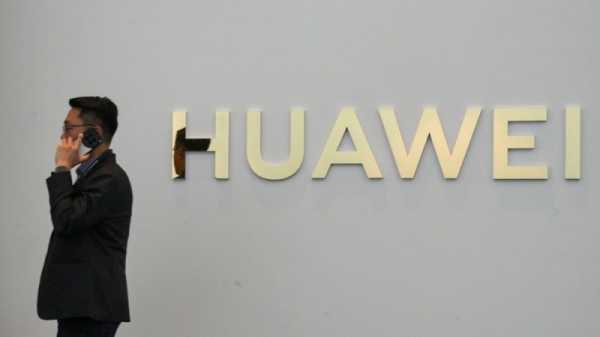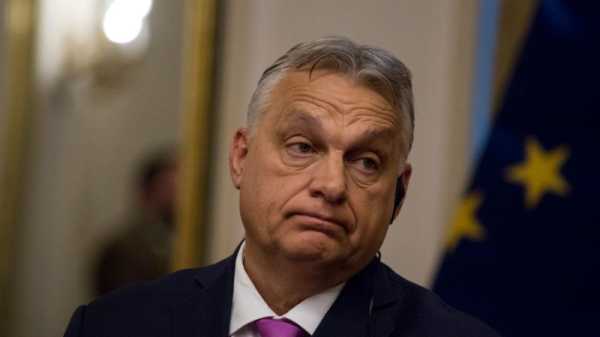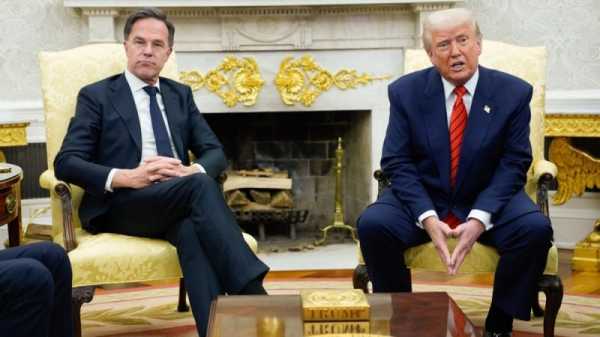
Germany’s Greens stand accused of engaging in a veritable bout of cronyism, as political opponents have pounced on a chink in the armour of a party all too ready to give off a sense of being “holier than thou”.
Ask the economic right about cronyism in Berlin, they will quickly hone in on the name “Graichen.” As in Patrick Graichen, one of Germany’s most influential energy policymakers and a top-level public official.
Shocker! Cronyism? Not in my oh-so-pure Berlin!
The right-hand man of Vice-Chancellor Robert Habeck and one of the architects of Germany’s so-so Energiewende is all the rage these days. Graichen sits at the heart of a scandal that includes his two siblings, his brother-in-law, his best man, and many others.
That leaves a lesson to be learned: if you want to completely overhaul the world’s fourth-largest economy, you’d better ensure you are clean and immune from any scandals. So, what exactly is the chink in Graichen’s armour?
In 2020, Patrick Graichen sat at the helm of Agora Energiewende, a Berlin-based think-tank that was gaining influence and manpower.
His sister, Verena Graichen, was a senior researcher at the Öko-Institute, researching on behalf of the German government and vice-chief of environmental NGO BUND. Her husband, Michael Kellner, ran the Greens’ election campaign.
Their third sibling, Jakob Graichen, was similarly a senior researcher at the Öko-Insitute – working on a term familiar to EU wonks: the bloc’s emissions trading scheme, the ETS.
This “idyllic” world of think-tanking and science work ended when the Greens entered the government. Graichen, a leading thinker on the Energiewende, was called in to help implement it as a state secretary at the Ministry of Economy and Climate Action. Rewarded for his work, Kellner was also promoted to one of Graichen’s six colleagues.
Graichen was suddenly able to award work to the Öko-Institute that his siblings worked at. Two out of seven top-level public official jobs at one of the most influential ministries in German history were now occupied by the “Graichen clan”. The ministry says necessary compliance steps were taken.
And indeed, nobody really complained, in the beginning at least. Berlin insiders jokingly spoke of the “Graichen clan” after dark and over drinks. Taz reported on it repeatedly, yet few saw an issue.
This all came crashing down when the Greens sought to place one of theirs at the helm of the German energy agency (dena), a 500-strong institute tailored to supporting the Energiewende.
Michael Schäfer – formerly a green state-level MP with experience at the NGO WWF who’d stepped down from a leading role at the environmental NGO NABU over its continued resistance to wind energy – was the perfect candidate.
And thus, Graichen suggested that he be appointed. There was just one problem: Schäfer was Graichen’s best man. A clear conflict of interest that was not disclosed.
“Unfortunately, I did not pay proper attention in the search committee procedure,” Graichen later said. Still, can one simply forget that a candidate to become chief of a major agency is one’s best man?
By that time, large parts of the right were already howling for blood. The secretary-general of the centre-right CDU has since called for Graichen’s resignation.
So far, Graichen appears to have backing from up high. “A mistake was made. He is paying a high public price for it,” said Graichen’s boss, Robert Habeck.
Looking at past instances of cronyism in Germany, the Graichen affair is likely to be a footnote. But it is yet another lesson for politicians who seek to enact uncomfortable changes to tread carefully in all things.
Graichen has long become a target – he is often seen as the brains behind Germany’s climate and energy policy.
While his opponents are eager to overstate his influence – tabloid BILD asked whether Graichen was whispering think-tank plans into Habeck’s ears – it is beyond doubt that he’d become a man who spoke the uncomfortable truths to a Germany that was comfortable in its three-way “peacetime” dependence on China, Russia and the US.
It was Graichen who told gas network operators that their business model based on fossil fuels would play a very diminished role in a climate-neutral Germany.
It was he that urged the German heat pump industry to get serious about production, lest they be drowned in their cheaper competitors from abroad. And it was he who set Germany’s boiler ban from 2024 into action, one of the key levers to fix Germany’s gas addiction.
When I last met Graichen, in Copenhagen, he appeared unbothered by the affair. The day after, the German Bundestag debated his familial ties – at the behest of the far-right and with support from the conservatives.
“The country is in turmoil … this is the result of the “Familia Nostra” in your ministry,” said CDU secretary-general Mario Czaja.
Stephan Brandner, a leading far-right AfD MP, added: “The green clans are having a good time and all the while they are bullying us.”
Caught between a rock and a hard place, Graichen is increasingly facing a difficult choice:
Sit it out and risk damaging the Greens’ chances at the next election – also endangering his hitherto policy achievements – or step back, giving in to the cajoling from the right and his own coalition partner, the business-friendly FDP.
And his choice may largely shape Germany’s environmental policies, at least while this coalition is in power.
Today’s edition is powered by Medicines for Europe European Pharmaceutical Strategy at a crossroads: Independence versus market consolidation? How can we ensure equitable and timely access to medicines for patients in Europe? Hosted by MEP Stelios Kympouropoulos, join Medicines for Europe and EU40 on May 3 at the European Parliament. Learn more >>
The Roundup
Lithuania, Latvia, and Estonia are asking fellow NATO members to ramp up the air defence support to secure the Baltic part of the military alliance’ Eastern Flank in case of an attack ahead of revamping defence plans for the NATO territory, diplomats told EURACTIV.
A group of 24 cross-party members of the European Parliament have written to European Commission President Ursula von der Leyen to express their disappointment at an initiative to combat the piracy of live events, due for presentation this week.
The European Commission should make a “clear commitment” to nuclear, the president of French energy giant EDF’s small nuclear reactor project, Renaud Crassous, told EURACTIV France in an interview, describing the EU’s Net-Zero Industry Act proposal as a failure.
The European Union Agency for Railways (ERA) has overtaken national bodies as the primary authoriser for train vehicles, with a 60% share of all applications for new trains between June 2019 and April 2023.
Experts and lawmakers are making a case for a co-decision process allowing European citizens to have a voice in deciding how the EU budget is allocated, which could strengthen citizen participation and drive sustainable economic growth models across member states.
Ukraine’s agricultural goods are safe and comply with EU safety standards, Ukraine’s deputy agriculture minister stressed in an exclusive interview with EURACTIV just as a deal was struck with EU frontline countries to end the ban on Ukrainian agricultural imports.
As always, don’t forget to check out this week’s Transport Brief: Electrification of vehicles is picking up pace
Look out for…
- Innovation Commissioner Mariya Gabriel participates in ‘4th EdTech Roundtable’ in Brussels.
- Informal meeting of employment and social affairs ministers continues on Wednesday.
[Edited by Zoran Radosavljevic/Alice Taylor]
Source: euractiv.com



